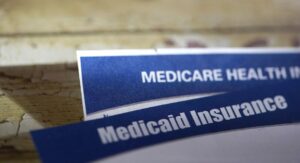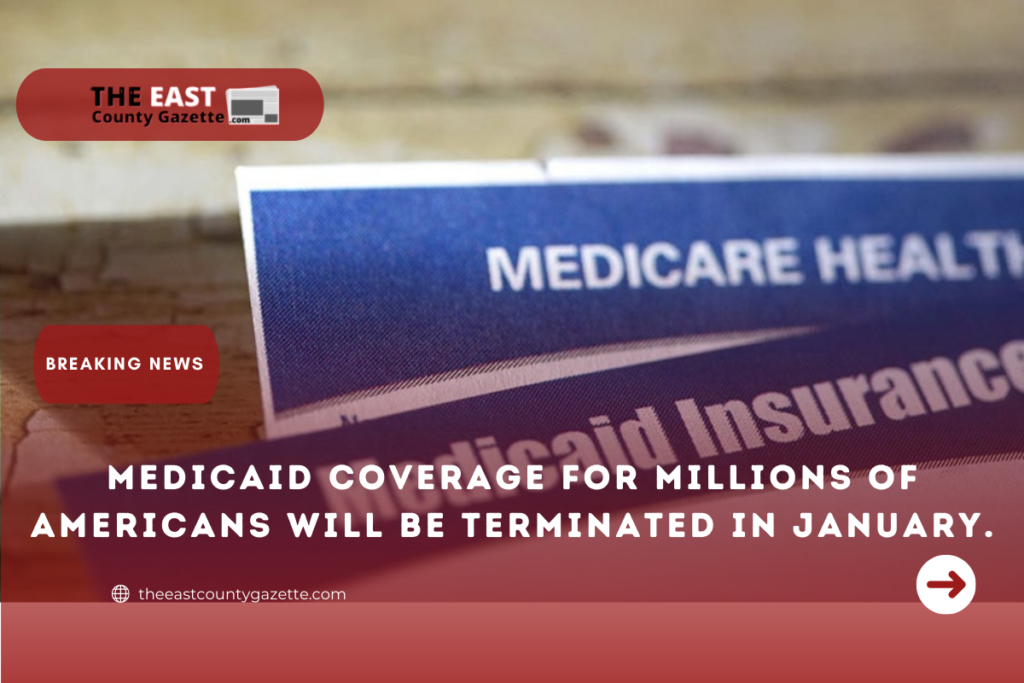According to a new analysis from the Urban Institute, the federal government’s health emergency designation is due to expire in January, which may result in up to 15 million Americans — including 6 million children — losing Medicaid coverage.

The Families First Coronavirus Response Act, which was signed into law by former President Donald Trump in March 2020 and prohibits states from removing Medicaid participants during a public health emergency, will no longer be in effect at this time.
The Urban Institute’s analysis indicated an increase in Medicaid enrollment as a result of the COVID-19 outbreak, according to the report.
Specifically, the Urban Institute stated that “the higher enrollment is driven by two main causes: the unprecedented pandemic-related job losses concentrated in March to June 2020, as well as the continuous coverage requirement of the Families First Coronavirus Response Act, which prohibits state Medicaid agencies from disenrolling beneficiaries during a public health emergency (PHE).”
If you are experiencing financial difficulties and fear that you will soon lose your Medicaid status, you can prepare by reducing your monthly costs. A personal loan may be able to assist you in consolidating high-interest debt.
There are other healthcare solutions available.
The Urban Institute pointed out that while many Americans may soon lose their Medicaid eligibility, they still have a variety of other healthcare options open to them, including the Children’s Health Insurance Program (CHIP), marketplace premium tax credits (PTCs), and workplace coverage.
Read More: How to Avail American Opportunity Tax Credit Up to $2,500?
It was noted in the report that “a large number of people who lose Medicaid coverage would be eligible for alternative sources of subsidized coverage.”
“According to our estimates, almost one-third of people who would lose Medicaid coverage would be eligible for Marketplace premium tax credits (PTCs) if the expanded tax credits under the American Rescue Plan Act (ARPA) were made permanent.
It goes on to say that 57 percent of the children who lose Medicaid would be eligible for the Children’s Health Insurance Program (CHIP), and an additional 9 percent would be eligible for Marketplace coverage with tax credits if Medicaid were to be eliminated.
Accordingly, “excellent cooperation between state marketplaces and Medicaid agencies is vital to reducing the number of people who lose their health care for no reason.”
However, even if there are alternative options accessible, insurance rates may end up being far more expensive.
As the Urban Institute pointed out in its report, “almost all of the remaining population would have access to health insurance through a family member’s work.”
“However, these other sources of coverage – particularly workplace coverage – would almost certainly be far more expensive for the affected families than Medicaid.”
Consider taking out a personal loan to help pay down your debt if you are at risk of losing your Medicaid coverage in January and require financial assistance.
Medicaid has had a tremendous expansion, but it will suffer decreases by 2022.
According to the Urban Institute, Medicaid enrollment is expected to skyrocket in 2021. By the end of the year, it is estimated that 17 million more non-elderly persons will have joined the program than there were at the beginning of the COVID-19 pandemic.
Enrollment, on the other hand, is predicted to rebound to normal levels by 2022. Furthermore, as a result of the expiration of the public health emergency designation, up to 15 million people will be unable to receive benefits during the first six months of the next year.
As the Urban Institute points out, “CMS may help assist in this transition by urging states to maintain initiatives established during the pandemic to speed eligibility procedures and promote continuity of coverage.” “Congress, too, has a role to play.
Allowing states to continue receiving the enhanced [Federal Medical Assistance Percentage] FMAP during the transition period to normal eligibility would remove a significant incentive for them to reduce enrollment as quickly as possible, as well as make the transition for both beneficiaries and state governments more seamless.
“In addition, establishing permanent the expanded Marketplace PTCs in the ARPA would make many people who lose Medicaid coverage as a result of the PHE eligible for assistance,” the report stated.
Continuity of care for Medicaid members can be improved by decisions made during the remainder of this year, and the financial stability of the state can be improved by decisions made during the remainder of this year.

